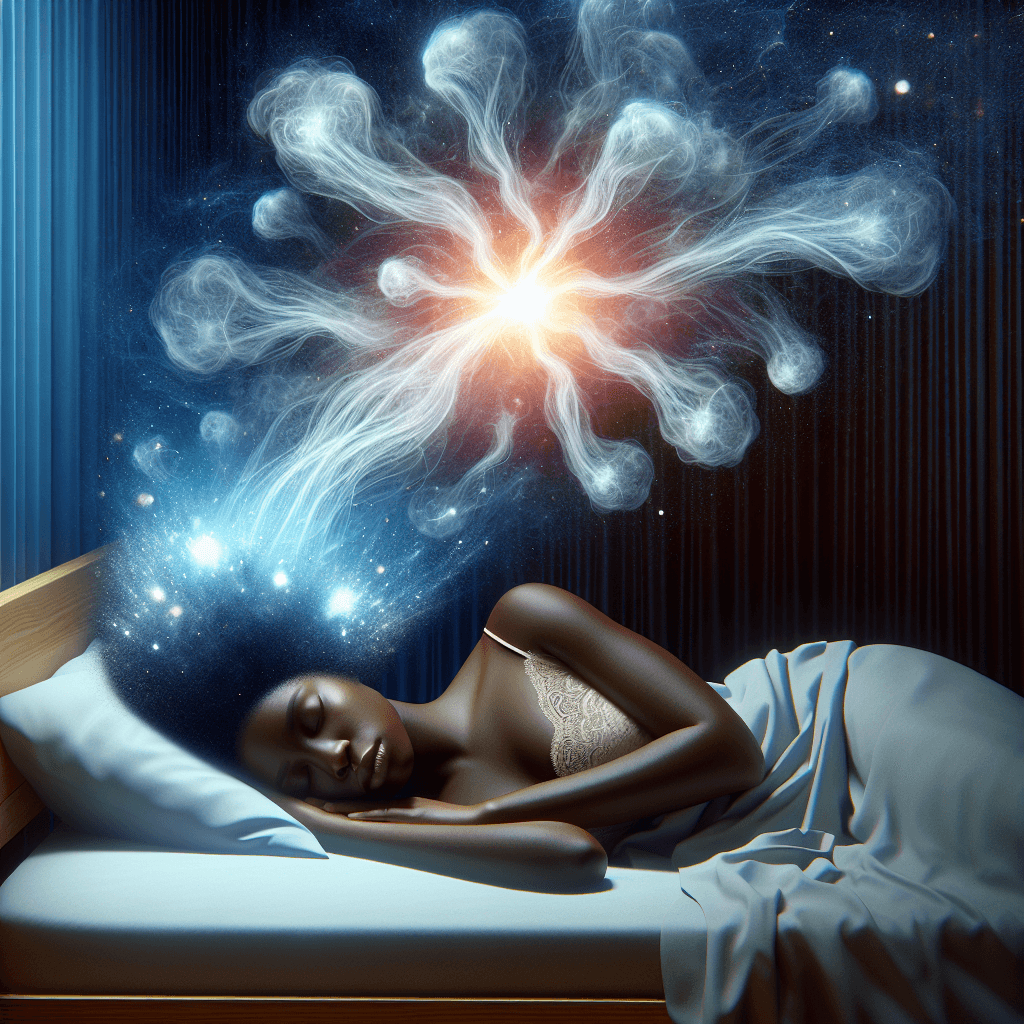Why do some people hear a loud explosion right as they fall asleep
That deafening crash you hear just as you drift off isn't a dream or a threat, but a fascinating neurological glitch we're here to explain.


Too Long; Didn't Read
TLDR: It's called Exploding Head Syndrome. It is a harmless auditory hallucination that happens when the part of your brain responsible for sound doesn't shut down properly for sleep and instead misfires, creating the perception of a loud bang. It is often caused by stress or fatigue.
Exploding Head Syndrome: Why Do Some People Hear a Loud Explosion Right as They Fall Asleep?
Imagine you’re finally drifting into a peaceful slumber after a long day. Your body is relaxed, your mind is quiet, and then—BAM! A deafening crash, like a gunshot or a cymbal clash, jolts you wide awake. You sit up, heart pounding, certain something has happened. But the house is silent, your partner is sleeping soundly, and there is no sign of disturbance. If this scenario sounds familiar, you may have experienced the bizarre and aptly named phenomenon known as Exploding Head Syndrome. While the name is alarming, the condition is not. This post will demystify this startling experience, exploring what causes it and what you can do about it.
What Exactly is That 'Explosion' in Your Head?
Exploding Head Syndrome (EHS) is a type of parasomnia, a sleep disorder that involves unusual events or experiences happening as you fall asleep, during sleep, or as you wake up. Despite its frightening name, it is a benign condition characterized by the perception of a loud, sudden noise or a sense of explosion in the head.
Key characteristics of an EHS episode include:
- The noise is imagined (an auditory hallucination) and not real.
- It is almost always painless, though it can be incredibly frightening.
- Some people also report seeing a flash of light or experiencing a mild muscle jerk along with the sound.
- Episodes typically occur during the transition from wakefulness to sleep (a stage known as the hypnagogic state).
The primary negative effect of EHS is the anxiety and fear it can cause. Many people initially worry they are having a stroke, a brain aneurysm, or another serious neurological event.
Unraveling the Mystery: Potential Causes of EHS
The exact cause of Exploding Head Syndrome remains unknown, but sleep researchers have several leading theories. The condition is not a sign of mental illness or a dangerous medical issue. Instead, it seems to be a momentary glitch in the brain’s shutdown process.
The Brain's "Shutdown" Glitch
The most widely accepted theory relates to how your brain transitions into sleep. Normally, as you fall asleep, different parts of your brain begin to "power down" in a smooth, orderly sequence. Your brainstem's reticular formation, which helps control consciousness, orchestrates this process, inhibiting your motor, visual, and auditory neurons.
In Exploding Head Syndrome, it’s believed this shutdown process hits a snag. Instead of fading out gradually, a group of auditory neurons may fire all at once. This sudden burst of neural activity is interpreted by your brain as a loud, abrupt noise. Think of it like a computer shutting down: instead of closing programs one by one, it suddenly crashes, creating a momentary jolt of chaotic energy.
The Role of Stress and Fatigue
While not a direct cause, many experts believe stress and extreme fatigue play a significant role in triggering EHS episodes. Studies, including research published in sleep medicine journals, have found a strong correlation between periods of high stress or exhaustion and an increase in the frequency of these events. When you are overtired or anxious, your brain’s ability to manage the delicate transition to sleep can be impaired, making these neural "misfires" more likely.
Should You Be Worried? Diagnosis and Management
The most important takeaway is that Exploding Head Syndrome itself is not dangerous. The condition is considered harmless, and the main challenge is managing the anxiety it produces.
Diagnosis is typically made based on a patient's description of their symptoms. A doctor will want to rule out other potential causes for the disturbances, such as other sleep disorders or seizure conditions.
Since the condition is benign, the primary "treatment" is education and reassurance. Simply understanding what EHS is and knowing that it isn’t a sign of a serious illness often dramatically reduces the fear associated with it. When anxiety decreases, the frequency of episodes often does, too. For those with frequent or particularly distressing episodes, a doctor may recommend:
- Improving sleep hygiene: Sticking to a consistent sleep schedule, creating a relaxing bedtime routine, and ensuring your bedroom is dark and quiet can promote a smoother transition to sleep.
- Stress management: Techniques like meditation, yoga, deep breathing exercises, or mindfulness can help calm the nervous system and may reduce the likelihood of episodes.
- Medication: In rare and severe cases, certain medications like calcium channel blockers or some antidepressants have been found to help, but this is not a standard approach.
Conclusion
Hearing a loud bang as you fall asleep can be a terrifying experience, but Exploding Head Syndrome is far more startling than it is serious. This strange phenomenon is essentially a brief, harmless hiccup in your brain's sleep-wake transition, often exacerbated by stress or fatigue. By understanding the nature of EHS, those who experience it can replace fear with knowledge, recognizing the sound not as a threat but as a peculiar quirk of the sleeping brain. If you are concerned about your symptoms, speaking with a doctor can provide peace of mind and confirm that what you're experiencing is, in fact, this surprisingly common and benign condition.


